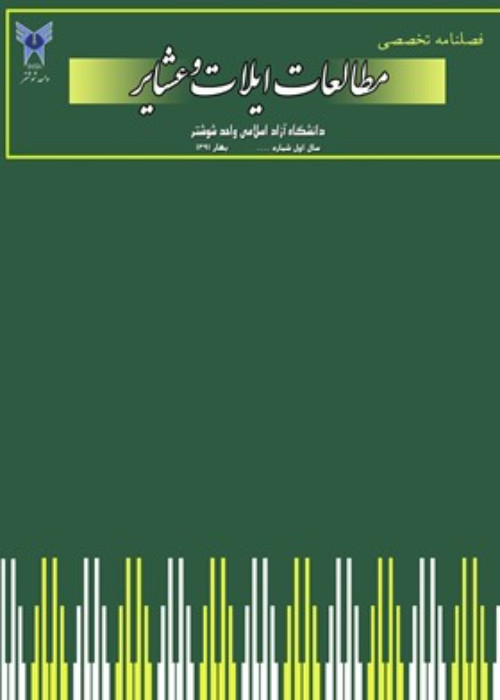Study of Nomads consequences Bakhtiari tribe in the province (Case Study: Shahid Gholipour city of Shoushtar)
This study aims to investigate economic-social effects of Bakhtiari nomads habitation. The current study is the type of descriptive – correlation studies which is practical in terms of objective. Research statistical community are heads of nomad households resident in Shahid Gholipour city at Shooshtar pre-province with 350 households which 300 families were settled in the focus of development in the years of 1998-1999 and 50 families of nomadic tribes of mentioned tribe who were settled in the vicinity of development center of Shahid Gholipour and migrated to countryside areas of Masjid Soleiman and Kouhrang in the summer. 108 heads of households as an inhabited member were measured as sample size using Cochran formula and 50 heads of households of the families uninhabited surveyed as census. The main research instrument was questionnaire and its validity was confirmed by a panel of experts and research reliability was confirmed by calculating Cronbach's alpha coefficient for different parts (0.85). The results showed that cosmopolitan orientation, variable access to welfare services and family size, social participation variables, age and a variable amount of agricultural land in the Gholipour city eight variables affecting the Bakhtiari Nomads. Access to utilities and household size variables show a negative impact on its willingness to settle.


